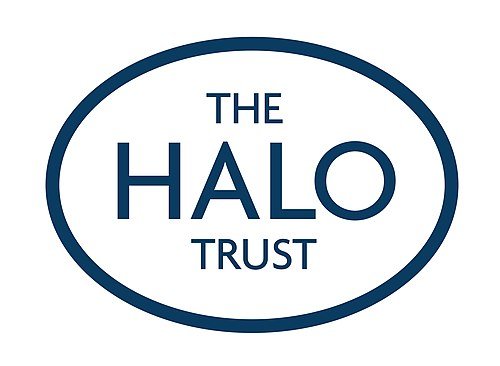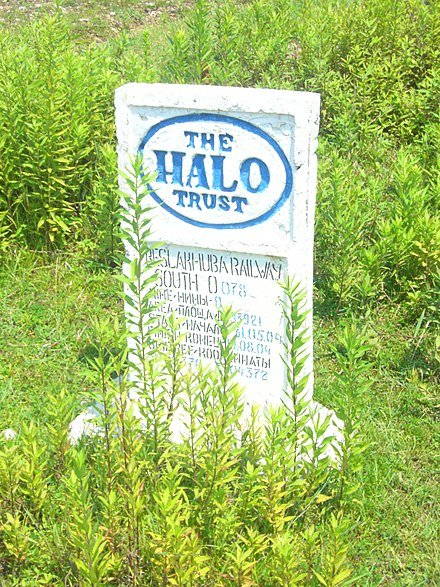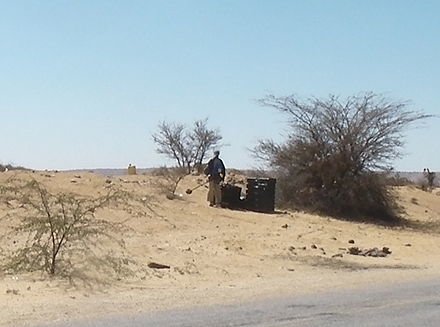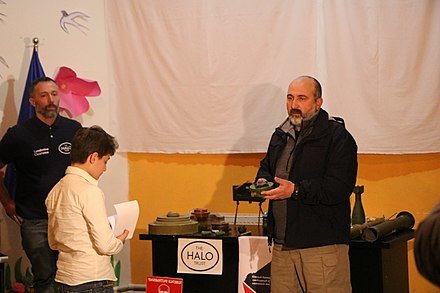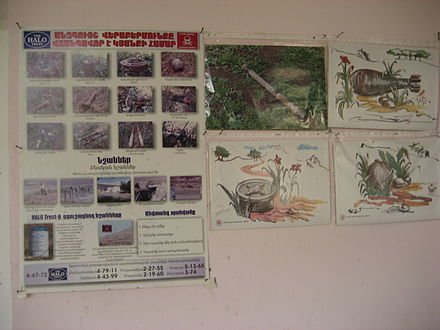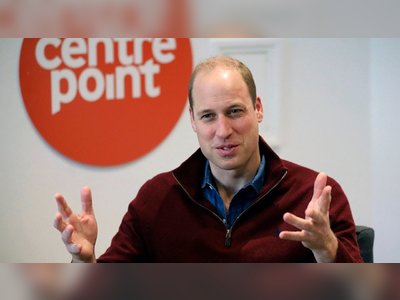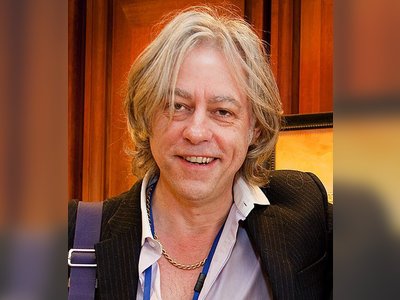British Heritage
Remember, Cherish, Learn.
beta
HALO Trust
The HALO Trust: A Beacon of British Humanitarian Heritage
The HALO Trust, an acronym for the Hazardous Area Life-support Organization, is a British-born entity that has etched an indelible mark in the annals of British heritage, particularly in the sphere of humanitarian work. Originating as a non-political and non-religious British charity, it has expanded into a significant American non-profit organisation, which has served as a global force in eradicating the debris of war—most notably, land mines.
Formally established in 1988 by Guy Willoughby, a former junior officer in the Coldstream Guards, and Colin Campbell Mitchell, a British member of Parliament and ex-colonel in the British Army, along with his wife Sue Mitchell, the HALO Trust initially operated from its global headquarters in Thornhill, Dumfries and Galloway, Scotland. As its footprint has expanded, additional offices have been established in Salisbury, UK, Washington, D.C. and The Hague, Netherlands.
Today, the HALO Trust operates in 28 countries worldwide, employing over 8,000 deminers. Afghanistan remains the organisation's largest operation zone, where HALO continues to function under the Taliban regime that assumed power in August 2021.
James Cowan assumed leadership of HALO as chief executive officer in February 2015, following a successful 33-year military career in the British Army, during which he commanded the 3rd (United Kingdom) Division. Cowan replaced Guy Willoughby, the co-founder of the organisation, who resigned in August 2014 following an investigation into his pay package. The inquiry led to a fracturing relationship between Willoughby and the board, culminating in his eventual resignation.
The HALO Trust has seen an influx of support, both financial and moral, from diverse corners of the globe. In 2019-20, its income shot up to £83.9 million, a considerable increase from £25.63 million in 2015-16. This support stems from various government bodies, including those of the US, UK, Finland, Norway, Germany, Netherlands, Ireland and New Zealand.
Despite the cut in funding for landmine clearance from £100 million to £25 million by the UK's Foreign, Commonwealth and Development Office in 2021, the organisation has been able to continue its humanitarian mission.
The HALO Trust's significant accomplishments have earned it global acclaim. It has destroyed over 1.5 million landmines, over 11 million pieces of large calibre ordnance, and over 200,000 cluster munitions. Moreover, it has successfully cleared around 10,800 minefields, and made safe a combined total of over 1.8 million acres from landmines and unexploded and abandoned ordnance.
Its impact and success have not gone unnoticed; in 2012, HALO was honoured as the Overall Winner in the Charity Awards by Civil Society Media. This honour reaffirmed the critical role HALO plays in mitigating the hazards of post-war societies.
HALO's contributions span numerous countries and regions, reflecting the broad scope of its humanitarian activities. Its engagement ranges from large-scale clearance efforts in Angola, Mozambique and Cambodia, to critical work in contested regions such as Somaliland, Laos and Sri Lanka.
The organisation has also made valuable strides in Georgia, Nagorno Karabakh Republic and Chechnya, despite the political complications in these regions. Its commitment to humanitarian efforts has remained undeterred by the difficult circumstances it often encounters, as was evident during the tragic attack on a HALO Trust De-Mining Team in Afghanistan in June 2021, in which 10 team members were killed.
The HALO Trust embodies an important aspect of British heritage, reflecting the nation's commitment to humanitarian action, global security, and sustainable development. Despite the challenges that have confronted the organisation, it has remained steadfast in its mission, providing life-saving services to communities affected by the remnants of war. Its journey and achievements serve as a testament to the indomitable spirit of humanity, and its legacy continues to inspire similar endeavours worldwide.
Establishment and Global Reach
Formally established in 1988 by Guy Willoughby, a former junior officer in the Coldstream Guards, and Colin Campbell Mitchell, a British member of Parliament and ex-colonel in the British Army, along with his wife Sue Mitchell, the HALO Trust initially operated from its global headquarters in Thornhill, Dumfries and Galloway, Scotland. As its footprint has expanded, additional offices have been established in Salisbury, UK, Washington, D.C. and The Hague, Netherlands.
Today, the HALO Trust operates in 28 countries worldwide, employing over 8,000 deminers. Afghanistan remains the organisation's largest operation zone, where HALO continues to function under the Taliban regime that assumed power in August 2021.
Leadership Transitions and Challenges
James Cowan assumed leadership of HALO as chief executive officer in February 2015, following a successful 33-year military career in the British Army, during which he commanded the 3rd (United Kingdom) Division. Cowan replaced Guy Willoughby, the co-founder of the organisation, who resigned in August 2014 following an investigation into his pay package. The inquiry led to a fracturing relationship between Willoughby and the board, culminating in his eventual resignation.
Support, Financing and Economic Impact
The HALO Trust has seen an influx of support, both financial and moral, from diverse corners of the globe. In 2019-20, its income shot up to £83.9 million, a considerable increase from £25.63 million in 2015-16. This support stems from various government bodies, including those of the US, UK, Finland, Norway, Germany, Netherlands, Ireland and New Zealand.
Despite the cut in funding for landmine clearance from £100 million to £25 million by the UK's Foreign, Commonwealth and Development Office in 2021, the organisation has been able to continue its humanitarian mission.
Accomplishments and Recognition
The HALO Trust's significant accomplishments have earned it global acclaim. It has destroyed over 1.5 million landmines, over 11 million pieces of large calibre ordnance, and over 200,000 cluster munitions. Moreover, it has successfully cleared around 10,800 minefields, and made safe a combined total of over 1.8 million acres from landmines and unexploded and abandoned ordnance.
Its impact and success have not gone unnoticed; in 2012, HALO was honoured as the Overall Winner in the Charity Awards by Civil Society Media. This honour reaffirmed the critical role HALO plays in mitigating the hazards of post-war societies.
Geographic Operations and Contributions
HALO's contributions span numerous countries and regions, reflecting the broad scope of its humanitarian activities. Its engagement ranges from large-scale clearance efforts in Angola, Mozambique and Cambodia, to critical work in contested regions such as Somaliland, Laos and Sri Lanka.
The organisation has also made valuable strides in Georgia, Nagorno Karabakh Republic and Chechnya, despite the political complications in these regions. Its commitment to humanitarian efforts has remained undeterred by the difficult circumstances it often encounters, as was evident during the tragic attack on a HALO Trust De-Mining Team in Afghanistan in June 2021, in which 10 team members were killed.
Conclusion
The HALO Trust embodies an important aspect of British heritage, reflecting the nation's commitment to humanitarian action, global security, and sustainable development. Despite the challenges that have confronted the organisation, it has remained steadfast in its mission, providing life-saving services to communities affected by the remnants of war. Its journey and achievements serve as a testament to the indomitable spirit of humanity, and its legacy continues to inspire similar endeavours worldwide.
- HALO Trusten.wikipedia.org
